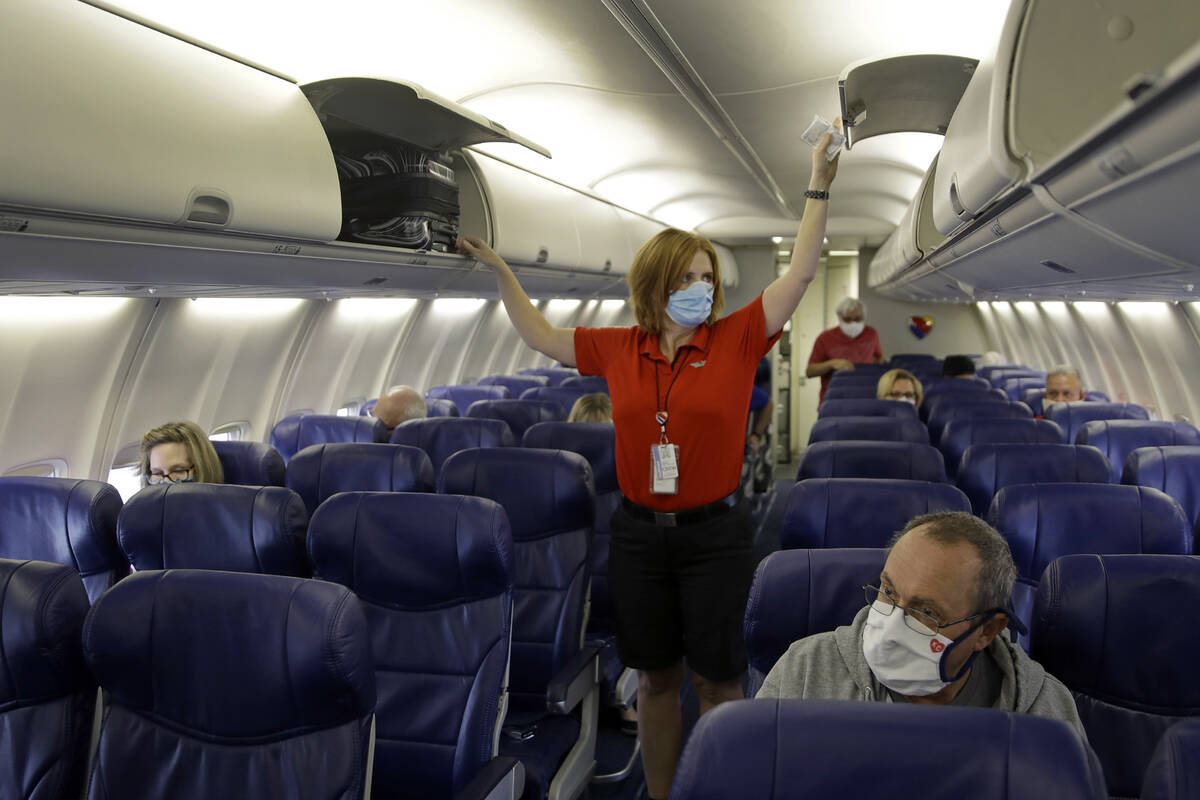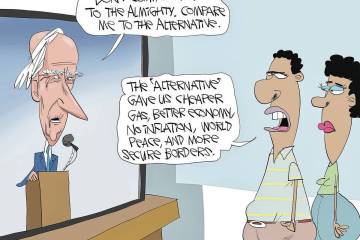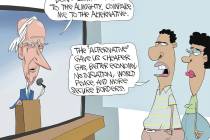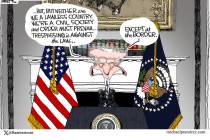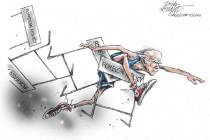COMMENTARY: Do masks work to stop virus spread?
Joe Biden proclaimed, “Wearing masks is not a political statement, it is a scientific imperative.” He was wrong. There is little evidence supporting generalized use of masks.
A pre-COVID systemic review of interventions to combat the spread of respiratory viral diseases by the highly regarded Cochrane Library found that medical/surgical mask wearing makes little or no difference to the outcome of influenza or influenzalike illnesses compared to not wearing a mask.
A recent review of the literature reported two randomized controlled clinical trials of the effectiveness of masking in COVID-19. One failed to demonstrate a statistically significant benefit. The second found small, marginally statistically significant reductions in viral transmission for surgical masks but not for cloth masks. Thirteen of 14 tests assessing mask-wearing in non-COVID respiratory infections failed to find a statistically significant benefit.
Randomized controlled clinical trials are the gold standard in medical research because randomization minimizes the effect of unmeasured confounding variables and researcher bias that can occur in observational studies.
Early in the pandemic, the Centers for Disease Control and Prevention, the World Health Organization, British health authorities and the European Center for Disease Prevention and Control all refrained from recommending widespread mask usage, often discouraging it. Dr. Anthony Fauci emailed in February 2020 that the typical mask “is not really effective in keeping out virus, which is small enough to pass through the material.” In a March 8 interview on “60 Minutes” he said that “there’s no reason to be walking around with a mask.”
Nevertheless, the CDC in April 2020 began recommending mask wearing, including cloth masks. A CDC Science Brief relied on observational masking studies where the evidence suggested benefit, while highlighting the limitations rather than outcomes of studies that suggested the absence of benefit or even harm.
The CDC repeatedly highlighted an observational study of two COVID-19 positive hairstylists in Missouri who were masked and provided services for several days after developing COVID-19 symptoms to 139 customers, who were mostly masked. Sixty-seven customers who were tested were negative and none of the remaining 72 reported symptoms.
Yet, no one knows if any of the 72 untested, asymptomatic customers were actually infected. Half of COVID-19 infected people are asymptomatic or have mild symptoms. In addition, viral shedding and infectiousness is highest in the two to three days before symptom onset, which is before these symptomatic hairdressers encountered the study customers. Finally, there was no control group to show how many customers would be infected by COVID-19 positive hairdressers who did not wear masks.
Similarly, CDC director Dr. Rochelle Walensky has repeatedly cited an observational Arizona study claiming that school districts without mask mandates were 3.5 times more likely to have COVID outbreaks than districts that required masks. The study is an outlier in the literature and, as David Zweig showed in the Atlantic, has multiple methodological problems rendering its conclusions worthless.
The CDC’s about-face on masks for general use appeared to be a demonstration it is doing something.
Generalized mask mandates had little benefit. A study of infection rates with mask mandates and rates of mask use in all 50 states during the first year of the pandemic concluded that “mask mandates and use are not associated with slower state-level COVID-19 spread during COVID-19 growth surges.” Ian Miller’s “Unmasked: The Global Failure of COVID Mask Mandates” shows that infection rates and deaths were no different in the 39 states that imposed mandates and the 11 states that did not.
While there is little evidence for generalized use, masks should be used in specific circumstances. People with an active infection should mask because the evidence for mask efficacy is strongest as a means of source control rather than as protection against infections.
People who are particularly vulnerable to COVID-19 such as the elderly, the immunocompromised and those with multiple medical problems should consider masking indoors because whatever small, uncertain benefit masking provides will be especially valuable for them.
Generalized mask mandates should not be imposed without evidence. And that, despite the president’s assurance, does not exist.
Joel M. Zinberg is a senior fellow at the Competitive Enterprise Institute and an associate clinical professor of surgery at the Icahn Mount Sinai School of Medicine.



